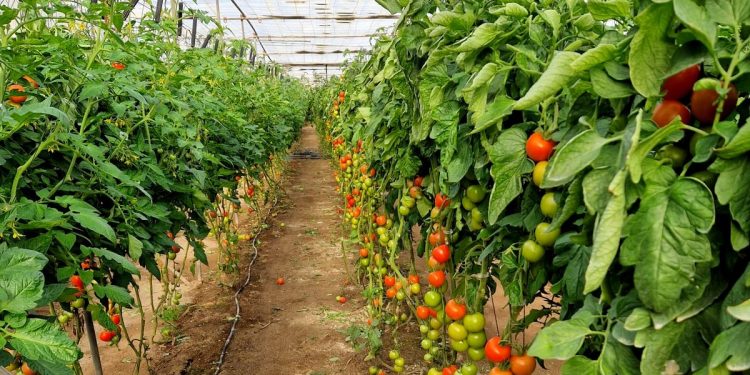In Almeria, Spain, tomato growers are set to benefit from rugose virus resistant varieties, allowing for earlier planting cycles this year. This strategic shift aims to avoid the mid-season price drops experienced in previous years, positioning the region for better market stability and enhanced yields.
“As anticipated by some operators before the end of last season, this year’s tomato planting cycles in Almeria are expected to start earlier to avoid the drop in prices observed from January onwards last season,” says Julián Rodríguez, a tomato grower and member of CASI.
Thanks to the newly developed rugose virus resistant varieties, growers can plant 10 to 12 days earlier than usual. “Last year, we planted at the end of August to mitigate pest threats and heat. With these tested varieties, some growers have started planting nearly 20 days earlier than last season,” Rodríguez notes.
Throughout last season, the performance of these new varieties was closely monitored on a trial farm belonging to the cooperative. The results were highly positive, indicating that these plants are more vigorous and resistant to the disease, while maintaining high yields and consistent quality.
“The rugose virus has been a significant concern for us, but this season we are starting with much more confidence,” Rodríguez states. With the fields mostly cleared of other pests due to a recent break, the primary concerns now are minor whitefly or Tuta infestations, nematodes due to hot weather, and increased water usage. However, the threat from the rugose virus appears to be under control.
It’s important to note that the earlier planting doesn’t necessarily mean an equivalent earlier harvest. Due to lower fall temperatures and reduced sunlight, the start of the harvest might be delayed by 20 to 25 days. “Last year, this delay significantly impacted us. Up until Christmas, production and prices were balanced, but from then on, prices stagnated, leading to a 20% drop in turnover compared to the previous year,” Rodríguez explains.
Looking ahead, there is uncertainty about Morocco’s planting strategies, especially whether they will adopt new resistant varieties. Morocco has faced its own challenges with the rugose virus and Tuta during the spring-summer crop cycle. Nonetheless, Almeria is optimistic about the coming season, bolstered by the introduction of these new tomato varieties.









